|
Chinese Ch'an is the method of permanently altering one's perception. This is achieved by changing 'how' and 'where' the individual places their 'attention'. The default setting for human-beings - which is linked to the evolutionary drive to survive - requires the general attention to be fixed upon the sensing of permanent (external) stimuli - as mediated through the six sense-organs. Modern science, of course, informs us that there are many more than just the assumed 'five' senses in the West (perhaps as many as 'thirty') - but these further senses are in fact specific aspects (or elements) of perception - and easily fall within the Buddha's schematic of defining the 'mind' as a 'sense'. Human ancestors had to be acutely 'aware' of their surroundings if their chances of survival were to be enhanced. After the development of the human mind, body and environment - settled human culture allowed individuals to contemplate their existence. As much of this is speculative in nature - it falls under the subject of religion and spirituality - with the modern trend involving secularised conspiracy theories. The point is that there are many 'external' places (the 'guest' position) where individuals are able to place their awareness. It does not matter what belief system sustains this 'externality' - as the 'guest' position is NEVER left. The Chinese Ch'an tradition offers a methodology to alter, shift and change this orientation. Chinese Ch'an does this by transitioning the default setting of human perception away from the 'guest' position - and toward the 'host' position. The 'host' position is comprised of the empty essence that underlies ALL perception. Therefore, it does not matter where an individual lives, when an individual lived - or the culture that defines the prevailing material conditions - the empty mind ground will ALWAYS underlie whatever physical structures the conditioned elements construct. Today, many spiritual schools are content to pursue a material path that encourages adherents to become attached to this or that outward manifestation - often for a large fee! Being 'attached' to whatever form of externality that takes your attention is not difficult and you certainly do not need another's permission or guidance to attain it. This is why a genuine Ch'an teacher is often unpopular in the world of material externality - as he or she continuously speaks and acts from the 'host' position. The genuine Ch'an teacher is a beacon of stable hope in a sea of changing uncertainty - as was the example of Master Xu Yun (1840-1959). In the meantime, words, silence, actions, and inactions - all serve to turn the adherent's attention BACK (inward) toward the empty essence of ALL material experience. If you are looking for the confirmation of your existing views and opinions (the 'guest') - then you have come to the wrong place. There are many 'businesses' out there that will sell you a robe and an ordination certificate. How's that for unpopularity?
0 Comments
Although eulogised more or less the world over today – Master Xu Yun attracted his fair share of criticism. Although completely indifferent to worldly affairs he was accused of being a ‘rightest’ and a ‘leftist’ at different times in his existence. Those jealous of his spiritual power (and seniority) within the Chinese Buddhist System – accused Master Xu Yun of breaking the very Vinaya Discipline he fervently enforced upon his disciples. Quite often this involved the rules surrounding sexual self-control and celibacy – with Master Xu Yun accused of participating in relations with male acolytes. Of course, there was never any material evidence to substantiate these rumours. At one time a young woman took her clothes-off in front of a meditating Master Xu Yun on a boat packed with witnesses – and he never reacted. It is speculated that this woman was paid to do this in an attempt to secure material evidence regarding Master Xu Yun breaking the Vinaya Discipline.
Part of the reason inspiring these baseless attacks involved the Imperial Japanese presence in China between 1931-1945 – which saw an attempt at manipulating the Chinese Sangha into adopting the Japanese Zen practice of NOT following the Vinaya Discipline and allowing Buddhist ‘monks’ to be married, eat meat and drink alcohol. There were some collaborative elements within a rapidly modernising Chinese culture that viewed Master Xu Yun’s attitude as being old fashioned and behind the times. Master Xu Yun, despite this pressure from without and within Chinese culture, nevertheless, refused to buckle and instead reacted with an ever-greater vigour in calling for the upholding of the Vinaya Discipline! When told what others were negatively saying about him, Master Xu Yun would laugh and brush the insult aside. What others said was viewed by Master Xu Yun as being a product of greed, hatred, and delusion – and the very ignorance that following of the Vinaya Discipline sought to uproot and dissolve into the three-dimensional emptiness of the empty mind-ground. Just as following the Vinaya Discipline represented the pure ‘host’ position – the impure ‘guest’ position represented the dirtiness of the ordinary, mundane world and its machinations. Why follow the latter when the former offered safety, sanctuary, and a relief from human suffering? Pretending to be a ‘monk’ when immersed in the filth of the ‘guest’ position of lay-existence is NOT correctly following the Buddha-Dharma as taught by Master Xu Yun. Master Xu Yun shuffled-off his mortal coil 64-years ago (in 1959) – on October 13th (when the Chinese Lunar Callender is converted into the Western Solar equivalent). He was in his 120th-year and had lived nearly two of the 60-years cycles that define the Chinese Zodiac. Although born in the Year of the Rat – and obviously a survivor – Master Xu Yun had no patience for superstition. Indeed, his biography is strewn with accidents, injuries, and the occasional monastic disciplining (involving corporal punishment). None of this bothered him psychologically (as he was ‘detached’ from his feelings) – even if the experience damaged him physically. The question is - how many Buddhist practitioners today are prepared to be like this? All the Tang and Song Dynasty Ch’an Records pursue exactly the same task of clarifying the ‘host’ and defining the ‘guest’. The realisation of the ‘host’ is preferred – whilst the denying of the ‘guest’ is encouraged. Even so – it is clear that even within Chinese-language sources – the mistaking of one for the other is a continuous hazard. If this is true of Chinese culture – how much more difficult must it be for followers of the Dharma in the West? The Ch’an path may be direct – but this fact does NOT make it ‘easy’. Sometimes it is more convenient for individuals to follow simpler paths – even if these paths are harder – and infinitely less likely to achieve results! Ch’an is NOT like this. As Master Xu Yun aged – his body changed dramatically. This is a reality we all face and are facing – and yet despite these profound shifts in physical existence – it is never viewed within the Ch’an tradition as anything more than changes occurring in the ‘guest’ - as the ‘host’ (which must NEVER be departed from) does NOT change one iota regardless of what happens to the physical body or the environment within which it exists. This definition of reality and priority differs significantly from what mainstream society finds interesting or important. This is the entire purpose of the Buddha-Dharma and why the Ch’an Method exists. Sometimes, Master Xu Yun could NOT stand-up due to his very advanced age. This is why he is photographed sat on a chair. He did unduly NOT care about this situation as the ‘host’ position never varies – whilst the ever-changing ‘guest’ position find its place within the accommodating (and three-dimensional) emptiness. This is the eternal lesson that Master Xu Yun teaches humanity. This is the ‘host-in-host’ (that is the integration of the ‘host’ and the ‘guest’) position which transforms the ‘guest’ so that it is correctly viewed as traversing the surface of the mind - whilst remaining entirely ‘empty’ from start to finish! Dear T
Thank you for your interesting email and much appreciated kind words. If you can see the essence of each letter - then we have no business together. Master Xu Yun (1840-1959) exuded this understanding every moment - just in case. The 'hua tou' (word head) is the method whereby the 'essence' (or 'beginning') of each word-letter is clearly perceived as forming, emerging and presenting from within the empty mind ground. As the enquiry requires a certain investigative power - usually this is provided by the question 'Who?' - deployed in any manner that suits the individual. Master Xu Yun used the hua tou 'Who is dragging this corpse around?' Another effective hua tou is 'Who is hearing?' - the latter arising from the instruction contained within the Surangama Sutra (translated by my grand-teacher - Charles Luk). Hearing in this context is not only everything that is heard with the ears - but all sensual stimulation - as all sensory stimulation arises (and returns) to the empty mind ground. Silent Illumination is nothing more than the empty mind ground - when it is fully realised, stabilised and the mind is fully extended. The hua tou 'stills' the mind (so that 'emptiness' within the head-mind is realised) - then, with further training - this realisation of 'emptiness' expands to penetrate the entire body and the environment. This is the extension of this realised 'emptness' throughout the interaction of the six-senses and the six-sense objects (that comprise the physical environment). The three stages of Ch'an training within the Caodong School are: 1) Surface-mind movement - delusion and confusion (guest). 2) Realised 'stillness' and 'emptiness' of mind (host). 3) Expanded awareness - whereby 'stillness' and 'emptiness' expand to incorporate the 'form' (material world) and 'void' (underlying empty mind ground). (Host-in-Host). These three basic levels of attainment can be further subdivided into five, eight, ten or even more stages - depending upon tradition. Another way of interpreting these three stages is: a) Delusion (the normal everyday mind). b) Relative enlightenment ('still' mind) a sense of 'peace' limited to the individual mind - Hinayana. c) Complete enlightenment (fully 'expanded' and permanently purified mind and senses) - Mahayana. None of this should be of too much concern for you. If the words and letters are not returned to the empty mind ground - then we can exchange words all day long - and nothing much will happen. Recently, I was given a 'dust whisk' - imagine that! Utter madness - and yet I did not refuse it - even more unbelievable! All Best Wishes Adrian Master Xu Yun (1840-1959) was adamant that everyone follows the Vinaya Discipline. Of course, although the Buddhist monastics have to follow all the hundreds of rules – the laity have to follow fewer (minus the ‘celibacy’) rules – but those that are followed are still ‘Vinaya’ rules. This is as well as the Bodhisattva Vows - which monastics and laity generally follow (as they do not demand ‘celibacy’). Therefore, a firm ‘moral’ (Sila) base is established that limits bodily movements and assist in the ‘stilling’ of the mind. Buddhist morality advocates psychological and moral ‘non-attachment' to worldly sensation. This in-turn prevents a stimulation of the mind that generates and encourages greed, hatred and delusion. With the three-taints ‘cut-off’ - the practitioner can effectively focus all their efforts upon looking within and realising the empty mind ground. Furthermore, there is a belief within Buddhist culture that by following a morally pure existence an individual guarantees a good rebirth either as a human-being or in one of the divine ‘heavens’ reserved for people who have acquired very good karma but who are not yet enlightenment. Taking this model into account, a devout ‘Buddhist’ guarantees a future rebirth free of the suffering generally associated with the lower realms of demi-gods, spirits and hungry ghosts, etc. Simply following moral rules, however, does not guarantee enlightenment even if it does generate a morally pure behaviour and conduct. Unless a Buddhist practitioner ‘looks’ firmly and carefully into the interior of the mind – and perceives the empty mind ground – no mind-development can take place. This means that although following arbitrary rules of conduct creates pure karma – this process in and of itself does not break the practitioner ‘free’ of the ‘samsaric’ cycles within which humanity in trapped. Just as the moral force of good karma eventually runs-out – an individual is then propelled back into the lower realms of existence to start the process all over again. This means that ‘suffering’ is transformed in a number of ways – but is never transcended and overcome. The Buddha’s path requires that the ridge-pole of karmic ignorance is permanently ‘broken’ once and for all, and for this to happen, morally purifying action must be undertaken so that the Buddha’s meditational methods can be fully applied in an efficient manner. If a person immorally behaves in the world and reinforces greed, hatred and delusion, then no amount of meditation will ‘uproot’ the three-taints and ‘clear’ the surface mind. Indeed, in such a situation, meditation in such a situation might well have the effect of strengthening and magnifying the three-taints and making their presence ever more obvious and domineering! Precepts, therefore, only work if the attention of the mind is firmly ‘turned within’ so that the meditator can clearly perceive the underlying reality of the empty mind ground. This is the exercising of the ‘Mind Precept’ as taught by Master Xu Yun and which is part of the Caodong Ch’an tradition. This is clearly explained throughout the Vimalakirti Nirdesa Sutra whilst never being mentioned by name. Unless the Buddhist method is being firmly applied to the mind – then all the precepts are relegated to ‘karma-purifiers’ and lose their enlightening function as ‘mind-realisers’. The hua tou and the gongan, for instance, are Ch’an methods for effectively ‘looking within’ - and it is through ‘looking within’ that the ‘Mind Precept’ is established. The empty mind ground is the essence of a) the mind and b) all phenomena. This means that all the hundreds of precepts of the Vinaya Discipline have the empty mind ground as their origination – with the understanding that this can only be known by ‘looking within’ and realising it as being so. By ‘looking within’ - the surface mind is ‘stilled’ and greed, hatred and delusion is fully and permanently ‘uprooted’. The emptiness of the mind eventually expands and becomes ‘all-embracing’ as it envelops all phenomena. This is how the ‘Mind Precept’ underlies all precepts and should serve as the foundation of genuine Buddhist self-discipline.
Knowing when to ‘assert’ and when to ‘give-way’ are important attributes for any spiritual traveller. As human-beings, we can find ourselves in all kind of circumstance as the day unfolds and our life progresses. Much of this will be mundane, but occasionally reality will take a shocking turn for the worst! No one saw the Covid19 pandemic arriving and virtually everyone was taken by surprise – despite numerous horror films over the years expressing narratives involving dystopic futures on a planet ravished by some type of illness, plague or other torturous device! Usually, such story-lines involve society collapsing back into an armed feudalism where brutality is the order of the day. Only the strong survive by preying on the weak. Of course, due to poverty and asymmetric economic development around the world, many people already live in these hellish conditions. I would add that even within the so-called ‘civilised’ areas of the world – killing and barbarity still exists – although it is hidden to a far greater extent (like a bad dream that people would rather forget). Most people grow-up in the world learning to survive. Indeed, this is a crucial and necessary skill. It is not the skill of the huntsman or gathering skills of the scavenger – but rather the ability to navigate the character and personality of our fellow human-beings. Children can be cruel and adults can be deceptive – for many these observations are facts of life. This imbalance in the inner and outer environment must be dealt with in one way or another. Ch’an is not an easy undertaking because it requires a devoted self-effort to take on our own inner world before we set about attempting to make changes in our outer worlds. Many will attack and ridicule any attempt at self-discipline – but for the world to be a better place – self-discipline is exactly what is required. Looking within with clarity and steadfastness eventually develops to looking without with wisdom and knowledge! Our personal circumstance can vary wildly through our lives. Many will experience poverty, homelessness, abuse and all kinds of deprivations – whilst others will experience only affluence and relative well-being, etc. The point is that regardless of the differences that define our outer existence, the empty mind ground is exactly the same for all beings! Master Xu Yun (1840-1959) lived a life continuously ‘gazing’ at the empty mind ground without any deviation whatsoever! More to the point – Master Xu Yun integrated his expedient self (or that which will eventually fall away) with the permanent and ever-present empty mind ground! Regardless of the situation he found himself in, or the circumstances he had to traverse – Master Xu Yun judged human reality not from the ego infected with greed, hatred and delusion – but rather from the pure and clean empty mind ground which underlies all reality and permeates the universe without end! Knowing where to place oneself in the phenomenal world - so as to maximise compassion, wisdom and loving kindness – is exactly possessing the skill of ‘moving’ and remaining ‘still’ in all situations!
Master Xu Yun (1840-1959) inherited all Five Schools of Ch'an Buddhism. So respected was his spiritual attainments that he was even transmitted lineages that he had not formally trained within - but whose teachers recognised that his depth of insight, humility and compassion fully equalled the divine levels of attainment that their schools demanded! In other words, without going out of his room, he knew all things (to quote the 'Book of Changes'). Chinese culture is very different to that of the modern West - despite the obvious similarities and intersections. Within the schools of Chinese spirituality - individuals can live very long periods time - and lineages can be passed from long-dead Masters to living Teachers and Practitioners! There is no need to justify any of this, it is just how things are - pure and simple. Lineages are like streams that flow into mighty rivers and then the sea! A genuine lineage should have a compelling force all of its own that propels adherents toward the intended spiritual goal! A true lineage is like an ever-moving conveyor-belt that moves everything along - continuously - and in the same direction! We must all set a good example for our colleagues, students and descendants! If we cultivate virtue and set a good example - then by our pure actions we are 'adding' momentum to the lineages we represent!
Dear Ben My personal experience (for what it is worth), appears to suggest to me that the enlightened state can (and is) realised by all and sundry - irrespective of circumstance - even though I fully acknowledge that its attainment is 'rare' even for those who are actively seeking it. When I was on Mount Athos, for instance, (probably around 2001), I met some remarkable Orthodox Christian monks whose ideas were very similar with regards to inner attainment. I also appreciate the beautiful icons of Jesus Christ depicted as an Asian man! In the West, the Christian monastics are the people who 'look within' to a surprising degree - but due to humility - their attainments are virtually unknown. Of course, this is very different to what might be called the 'popular Church' which is only concerned with crass individuality, recruitment (through conversion) and the amassing of wealth! These are the missionaries who did so much damage in Asia in times gone by. I have no time for this type of 'racist' spirituality - but I know that this is not the genuine Christianity and does not represents the ordinary Christian people who are very 'humble' and very 'compassionate'. Where Judaism has assisted me is mostly through superb secular academics who have happened to be of a Jewish ethnicity. I have also lived in Hindu and Muslim families and experienced tremendous caring and compassion - not being asked for a penny even after a year of hospitality! In all of this I do not exclude those who see themselves as 'atheists' (other than 'fascists') - as reality can emerge at the strangest of times. I was once walking who a dense jungle in Sri Lanka (in late 1996) with a bare-footed Buddhist monk. Suddenly, a huge hooded-snake rose up from the ground and was about three or four foot off the ground. It gently looked at me - swaying left and right. The Bhikkhu did not break his stride but walked toward the snake - which slithered up his body and rested its head on his right shoulder! The Bhikkhu then asked me to 'touch' the snake's head - which I did in a type of 'haze'! The snake then dropped to the ground and retraced its slither back into the undergrowth. The monk said he has met this snake for nearly 20-years years and almost in the same spot! The snake wanted to make sure that I understood that this was his path and that the jungle was not 'safe' for inexperienced strangers!
Zen Teaching of Instantaneous Awakening – Ch'an Master Hui Hai Translated by John Blofeld (1962)10/22/2020 Author’s Note: Charles Luk wrote this Foreword for the British Buddhist – John Blofeld – who had spent time in pre-Revolutionary China (working as an academic in the various Universities) studying Chinese Buddhism and Daoism in his leisure time. During that time, John Blofeld even had a personal encounter with Master Xu Yun (1840-1959) - the details of which are recorded in his biography entitled ‘The Wheel of Life’. John Blofeld also travelled all over Asia before marrying an Asian woman and settling in Thailand. The ‘materialism’ Charles Luk discusses requires clarification. The Buddha recognised that the physical world existed in-front of the senses and that the human mind was ‘attached to that which it ‘sensed’. This physical world, however, exists in a continuous state of flux (or ‘change’), and is ‘empty’ of any substantiality or permanent entity. In the enlightened state, the physical world does not ‘disappear’ as if by magic, but is rather transformed through the attainment and realisation that it is ‘free’ of self, ‘free’ of greed, ‘free’ of hatred and ‘free’ of delusion! The mind is disentangled from its habitual attachment to existing material externals, and the inherently ‘empty’ mind ground is realised, cultivated and developed (as described by the Cao Dong School’s Five Ranks). The Chinese Ch’an School combines the practical teachings of the Pali Suttas and the sublime teachings of the Mahayana Sutras and forms a perfect synthesis of understanding. Charles Luk uses the term ‘materialism’ to describe the mind’s attachment to physical externals, and humanity’s obsession with accumulation of wealth and material goods through the unbridled indulgence of ‘greed’. Charles Luk laments the fact that in the early 1960s, (the time of his writing), people were more interested in the accumulation of external profit, rather than the inner process of spiritual attainment. Whereas the exclusive possession of material goods seldom grants the assumed well-being associated with amassing profit – Charles Luk states that through the proper self-cultivation associated with the inner journey of Ch’an development, true peace of mind and relief from suffering is secured! This ability to ‘self-heal’ - Charles Luk says – resides in the minds of all human-beings! The material world is not necessarily or inherently ‘bad’ per se, but becomes so, depending upon how human-beings decide to relate to it. This is why the enlightened position of the Ch’an Master is described as being ‘neither attached to the (realised) void nor hindered by (the existing) phenomenal world’. Interestingly, Charles Luk discusses the concept of the ‘patient endurance of the uncreate’. After realising relative enlightenment, (or stage three of the Cao Dong School’s Five Ranks System), the perception of emptiness only exists within the mind (or ‘head’) of the individual practitioner. To traverse into the fourth and fifth positions of the Five Ranks – a practitioner must sit with ‘patience’ whilst contemplating the void with non-attachment and adjusting themselves to circumstances. This requires the maintaining of an ‘indifference’ to those circumstance. When this process is facilitated successfully, the emptiness within the head ‘expands beyond the bony limitation of the skull – and ethereally embraces the entire environment (and everything within it). Within phonetical Sanskrit the ‘patient endurance of the uncreate’ is written as ‘anutpattidharmakshanti’, whilst in Sanskrit script it is written as ‘अनुत्पत्तिधर्मक्षान्ति’. ‘Anutpatti’ translates as ‘unborn’, ‘non-born’ ‘uncreated’ - whilst ‘dharma’ represents the ‘entirety of reality’, and ‘kshanti’ equates with ‘patient endurance’. Material reality both ‘exists’ and yet is ‘uncreated’. It takes the practice of the right method of meditation to understand this reality - whilst abiding within the state of eternal patience and endurance (or perseverance). The Standard Sanskrit Dictionary describes this state as being a ‘preparation for a future state, and acquiescence in the state and moral condition which is yet to come.’ A possible Chinese translation is - anutpatti (uncreate) ‘起源’ (Qi Yuan) or ‘that which has not yet come to fruition – but which will eventually germinate and spring-up and sprout from the ground (when watered)’ - reality (dharma) ‘達摩’ (Da Mo) which means ‘unencumbered material reality which is realised (and encountered) everywhere without hindrance’, and ‘尚蒂‘ (Shang Di) ‘to continuously uphold and esteem without hindrance or obstruction’. Therefore, the Sanskrit term ‘अनुत्पत्तिधर्मक्षान’ (anutpattidharmakshanti) is translated into the Chinese language as ‘起源 達摩尚蒂’ - although, of course, there may be other examples generated at different times and in various places as Dynasties (and policies) came and went. Incidentally, the ‘Da Mo’ is exactly the same as that found in the Chinese translation of the name of the Indian Buddhist monk Bodhidharma - ‘菩提達摩’ (Pu Ti Da Mo). ACW (22.10.2020) Dedication: Respectfully dedicated to that true Buddhist, learned scholar, and author and translator of many valuable Ch’an texts, Charles Luk FOREWORD by Charles Luk
The ancients had their unexcelled ways of teaching which seem strange to the people of this modern age of materialism, not only in the West but also in the East. For the human mind is now more concerned with material than with spiritual values; it seeks only the satisfaction of its ever-increasing desires – though these are the very cause of our sufferings – and it casts away ‘its own treasure house’, which is its paradise of eternal bliss. So long as we allow our minds to discriminate and to grasp at illusion, the ancient teaching will seem strange, even stupid and silly, to us. However, if we succeed in disengaging our minds from externals – that is if we stop all our discriminating and discerning – the profundity of that teaching will become apparent to us, for it inculcates not only theory but also that practice which will give immediate results in the sphere of reality; for a teaching cannot be regarded as complete unless it gives the practical method of reaching the ultimate goal. When the Great Pearl preached his Dharma of instantaneous Awakening, he taught its doctrine, its aim, its substance and its function; thus his teaching consists not only of the right interpretation and correct understanding of theory but also of the practical realisation of substance and function, which are the two essentials of complete enlightenment. In other words, he taught the right Dharma which is immanent in everyone and which does not come from outside. The Master’s numerous quotations from Mahayana Sutras, together with his unsurpassed interpretations and comments, show that all great master read the whole Tripitaka before or after their enlightenment, and refutes the unjustifiable contention that sutra can be dispensed with in the Transmission of Mind introduced into China by the Twenty-Eighth Patriarch Bodhidharma. The Great Pearl urged his listeners not to let their minds abide anywhere and at the same time to keep from illusory non-abiding, so that a state of all-pervading purity and cleanness would appear of itself. And even this pure state should not be clung to, in order to release the mind from all remaining relatives and thereby attain realisation of the ‘patient endurance of the uncreate’ (anutpattidharmakshanti) which is an essential condition of complete enlightenment. Thus, his instruction followed exactly the same pattern of the Dharma as laid down by the Buddha who said in the Sutra of Complete Enlightenment that his disciples should keep themselves again and again from all illusions, including the illusionary idea of keeping from them, so as to wipe out all traces of subject and object until nothing further remained to be avoided – for only then could bodhi appear in full. Therefore, Part One of this book gives the Mahayana instruction for self-realisation of mind, for perception of self-nature and consequent attainment of Buddhahood. And Part Two contains the dialogues between the Great Pearl and those who came to him for instruction. If we seriously follow this teaching and practise self-cultivation, beginning with the mind as the starting point, there is every possibility that we shall succeed in reaching the same mental states as those described by the Great Pearl in his twenty-eight-line gatha. Charles Luk (Upasaka Lu K’uan Yu) Hong Kong Demystifying the enlightening experience is not a trivialisation of this experience, on the contrary, it is a clarification. As an exercise in logical thinking it also seeks to uproot and exclude the pretensions associated with pseudo-enlightenment and the exploitation contained therein. Is enlightenment a real experience? Yes – in my experience it is – but this statement should not be taken as a support for religion or religious dogma of any sort. It is a subjective experience which marks a radical shift in how an individual consciously perceives and interacts a) with consciousness itself, b) their physical body, and c) the material environment (and everything within it). I used the hua tou method for years (1989-1992) in an intense and dedicated manner, whilst living in relative isolation and receiving instruction from numerous individuals (with the guidance of Richard Hunn proving decisive). What happened? Through seated meditation throughout the day and night, I looked for certainty in a mind that was forever moving. My root consciousness would grasp this fleeting state, or that fleeting state which temporarily passed before it as being ‘the one’, as I had no real knowledge of what I was seeking. The act of regular meditation pursued through a highly regulated and disciplined outer lifestyle granted me security and stability in the physical world, so that I could direct all my available energy into the interior of my being. Endless thoughts and feelings traversed the surface of my mind and led to all kinds of vivid imaginations, usually as opposite and equal responses to the Vinaya Rules. (For instance, a complete lack of sexual activity in word, deed ad thought, led, for a time, to an intensification of thoughts and feelings premised upon ‘desire’). Initially, the surface mind would ‘quiet’ and a dull emptiness would appear – similar to a mirror made dull my smears and layers of still dust. On other occasions, this admixture of filth would manically swirl around. I could sense the true void behind this interchanging activity, but could not quite see through to it. (Later, I learned that this is stages ‘1’ and ‘2’ of the Caodong School methodology). After two years of meditation, and having my words ‘turned’ by Richard Hunn, a major (and permanent) breakthrough occurred. Whereas my words of enquiry were invariably jumping from one aspect of externality to another, Richard Hunn would expertly switch the emphasis away from the external (objective) to which I was attached – back toward the ‘root’ of the word-thought nexus, and into the empty mind ground. He performed this duty for me continuously and without fail. There was no pretence, no attachment to the external world – just Ch’an function returning to principle.
Eventually, after being shown the empty mind ground enough times, my mind-state radically shifted. A deep and profound ‘emptiness’ manifested that was nothing but complete ‘bliss’ to experience – like a continuous sexual orgasm throughout the mind and body, but completely divorced from the sexual function. Richard Hunn explained this as stage 3 of the Caodong School – further describing this awareness as ‘relative enlightenment’. The temptation was to stay in this magnificent state and never come out of it (once described as ‘samadhi suicide’). I could imagine living in a forest or on top of a hill, and permanently experiencing this ‘bliss’ for as long as my physical body existed. However, Richard Hunn warned me against this, and stated that the journey was not yet over. Being attached to this state of ‘oneness’ and ‘bliss’ was like being detained on a journey by a deceptive gold chain. This was also the stage of being sat atop of a hundred-foot pole – the key now was to ‘jump off’ - but how to do this? Although my mind had ‘cleared’, I still subtly mistook the now calm (and reflecting) surface mind (guest), as being the profoundly empty mind’s eye (host) – without knowing at the time that I was doing this. Stages ‘4’ and ‘5’ of the Caodong School explained this, but it was a difficult teaching to understand. Richard Hunn explained that I could meditate or not, and that he was saying nothing more about any of this. I decided to continue to meditate and to read the sutras (particularly the ample Ch’an literature translated by Charles Luk), as previously I had not read a word for a few years. When I first read a Buddhist text (the first of any text for two years), it was like the words were tumbling from mind, through my eyes and onto the paper... Surely an indication of what the Lankavatara Sutra terms the ‘turning about’ in the deepest recesses of the mind. This is where genuine Ch’an literature (and recorded dialogue) come into play. These enlightened (I.e. ‘non-inverted’) utterances orientate the mind and clear away confusion (although for the ego the opposite effect is observed). I altered my practice to periods of intense Ch’an meditation interspersed with elongated periods of worldly activity, as this entire affair appeared to turn on how ‘stillness’ and ‘activity’ was understood and undertaken. Richard Hunn simply advised that my ‘virya’ will carry me through. My mind in my head remained ‘still’ in the face of the ‘moving’ external world. For about a year I endeavoured to ‘balance’ this reality in various ways (the ‘not one’ of the ‘4th’ Caodong stage), always seeking the ‘not two’ (‘5th’ stage of the Caodong School). This is how it seemed to me then, with Richard Hunn stating that no genuine Ch’an master would say anything beyond the ‘3rd’ Caodong stage. Try as I might, I could not get beyond the duality of my ‘empty’ mind and the ‘moving’ world. I decided that the key lay in finding the ‘emptiness’ within the ‘empty’ mind. All of this was the world viewed from the ‘3rd’ stage of the Caodong School - looking inward and looking outward – there was the basic duality that I could not transcend. In the meantime, my hua tou practice matured. Whereas I had ruthlessly pursued ‘Who is hearing?’ - using the hearing capacity to control, organise and transcend the stream of thoughts in my mind, I now used this practice to simultaneously ‘return’ ALL my six senses (simultaneously) to the empty mind ground – although I always remained just this side of a major breakthrough. I began to see that ‘subject’ and ‘object’, although expediently disconnected, where in fact (and in some way) intrinsically connected. There was ‘oneness’ and there was ‘twoness’ all at once – but Richard Hunn (out of his compassionate wisdom) would not affirm or deny any validity to my observations – an I was always thrown back upon my own devices. Since my initial realisation there had been a tension of sorts. This provided the inner power to continue the journey. An ‘inner potential’ built-up through right intention, and correct meditational effort. One day, I was sat meditating out-doors, as I found the open air conducive to expanding the mind’s awareness. Whilst ‘returning’ all sensation to the empty mind ground, a gentle breeze blew across my face and front of my body. At this exact moment (around August, 1992), my perception finally altered and I adopted the ‘host’ and ‘host in host’ position – an integration of stages ‘4’ and 5’ of the Caodong School. My awareness, which had been confined only to my head, suddenly ‘expanded’ to encompass the entire environment. The awareness penetrated through my body and united the sense organs with sensory stimulus and sense objects into a profound (and empty) oneness and was vibrant and diverse. Reality was both ‘empty’ and yet ‘full’, and there was no contradiction to this understanding. My mind finally ‘turned’ so that I now perceived the world directly through the mind’s eye (host), rather than through its reflection in the surface mind (guest). Around 8 years later (in summer, 2000), Richard Hunn confirmed this experience as being genuine and correct (although in the years between 1992 and 2000 I had travelled to Hong Kong and Mainland China to visit relatives and meet various Ch’an monastics and lay practitioners, all of whom issued the appropriate recognition). As the ‘guest’ became the enlightened function of the ‘host’, the delusive quality was transcended so that the ‘guest’ became the ‘host’, or reality was now comprised of ‘host in host’. The ‘form’ and ‘void’ were clearly distinguishable (hence ‘not one’), and yet the ‘form’ and ‘void’ exist simultaneously integrated without contradiction, boundary or limit (hence ‘not one’). Everything continued as it was before (with Richard Hunn becoming my friend), and yet my mind was permanently (and radically) altered. |
Archives
March 2024
Categories
All
|
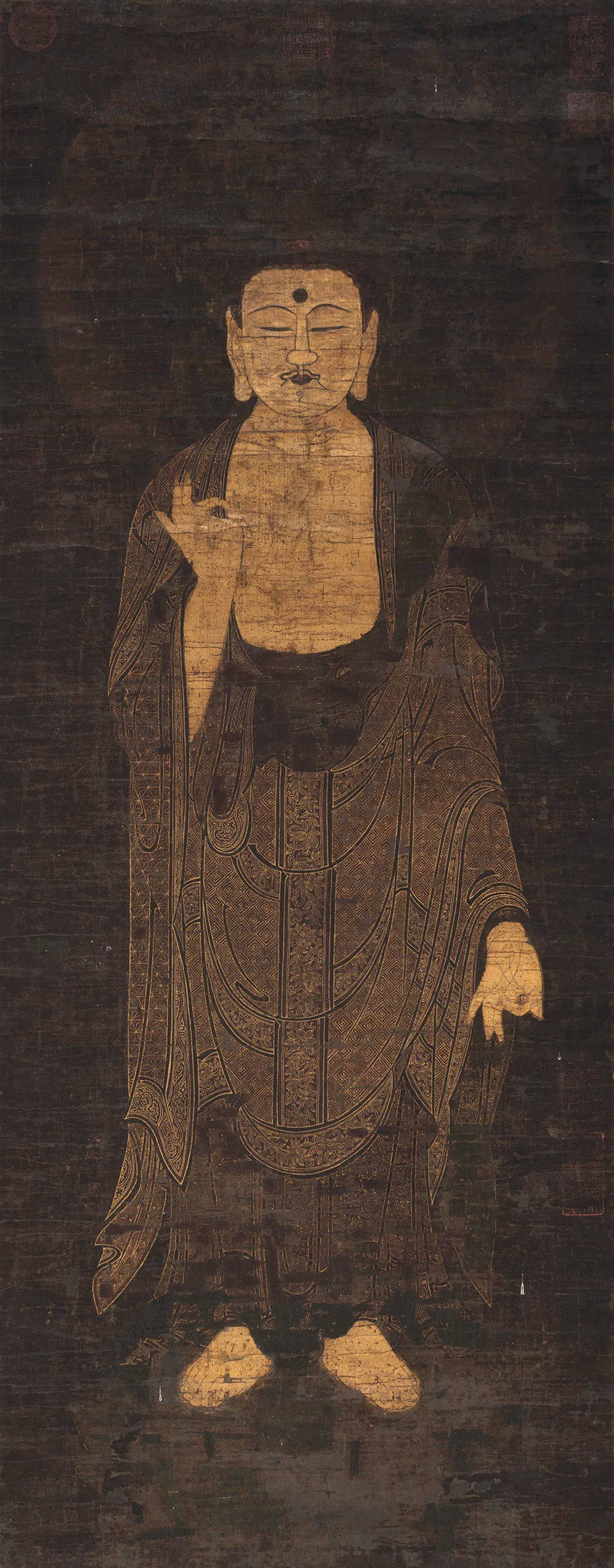
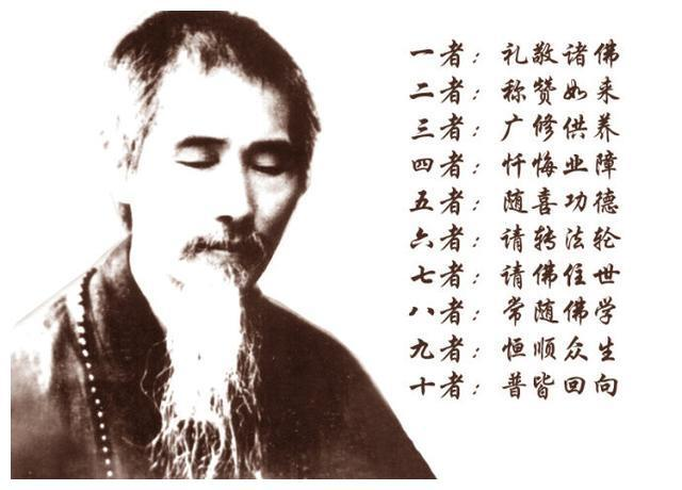
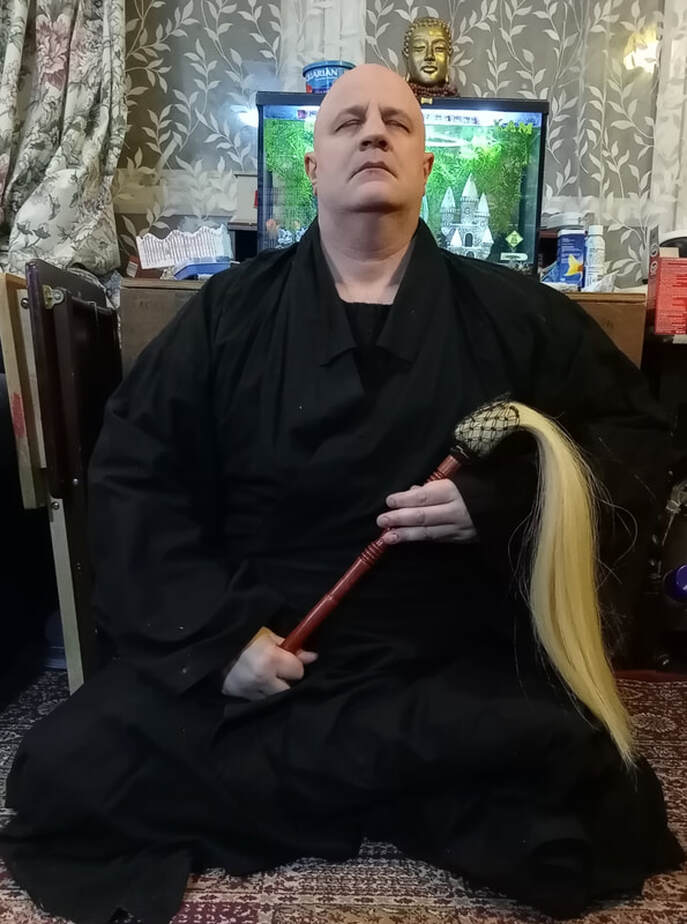
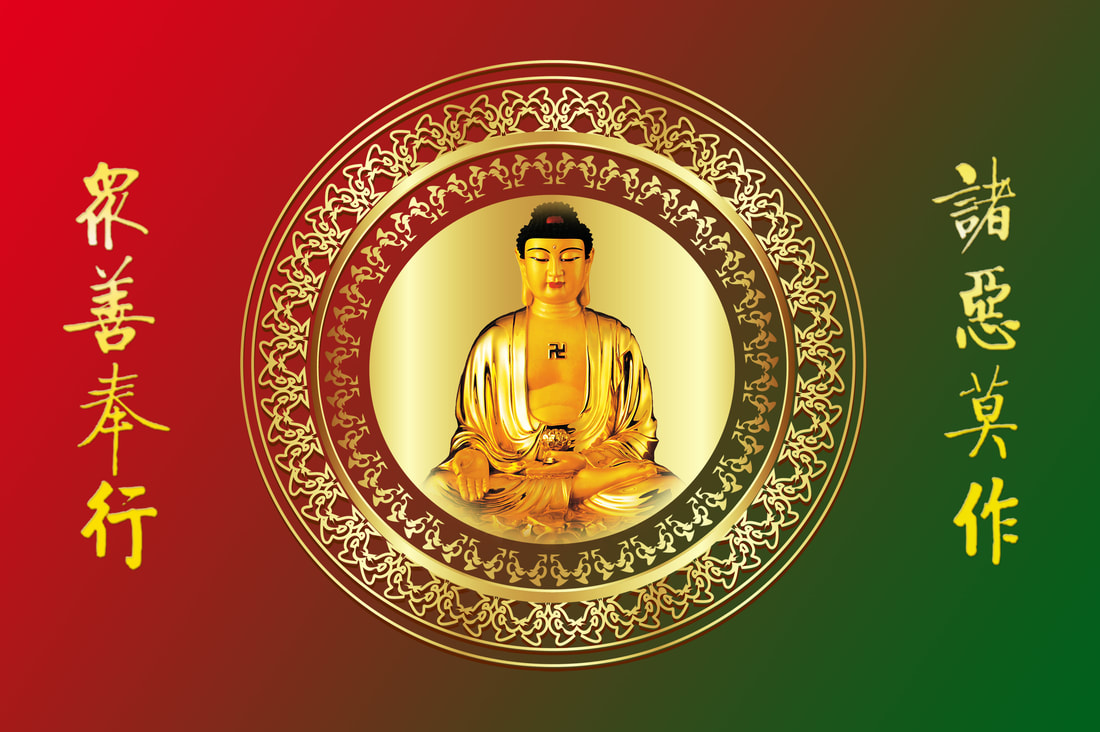
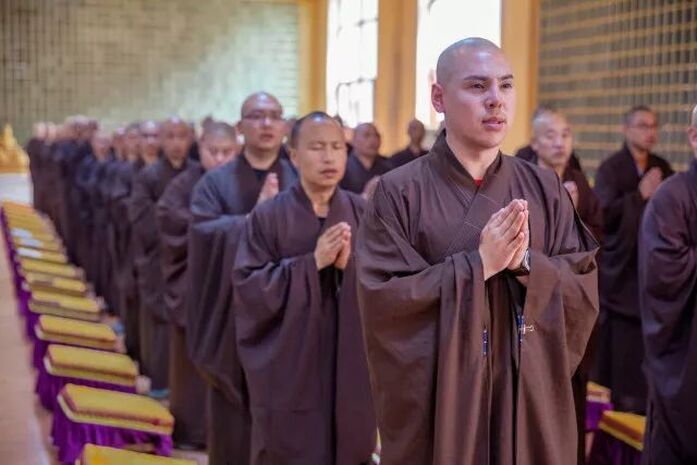
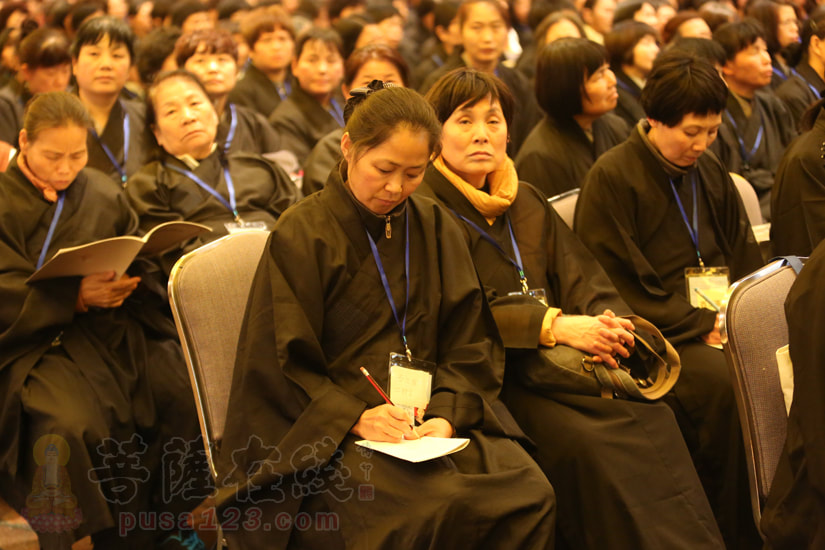
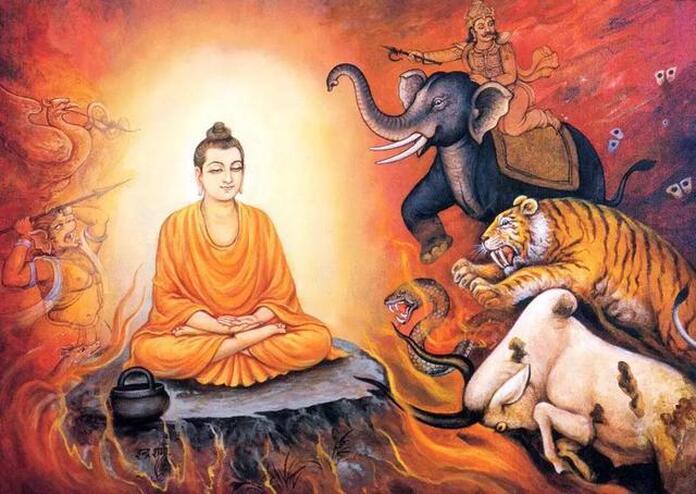
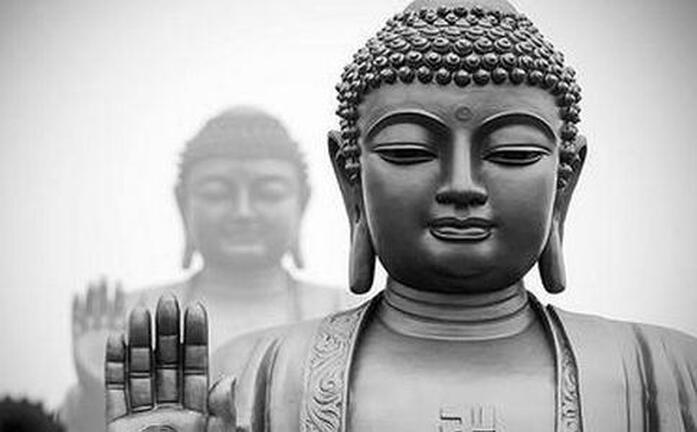
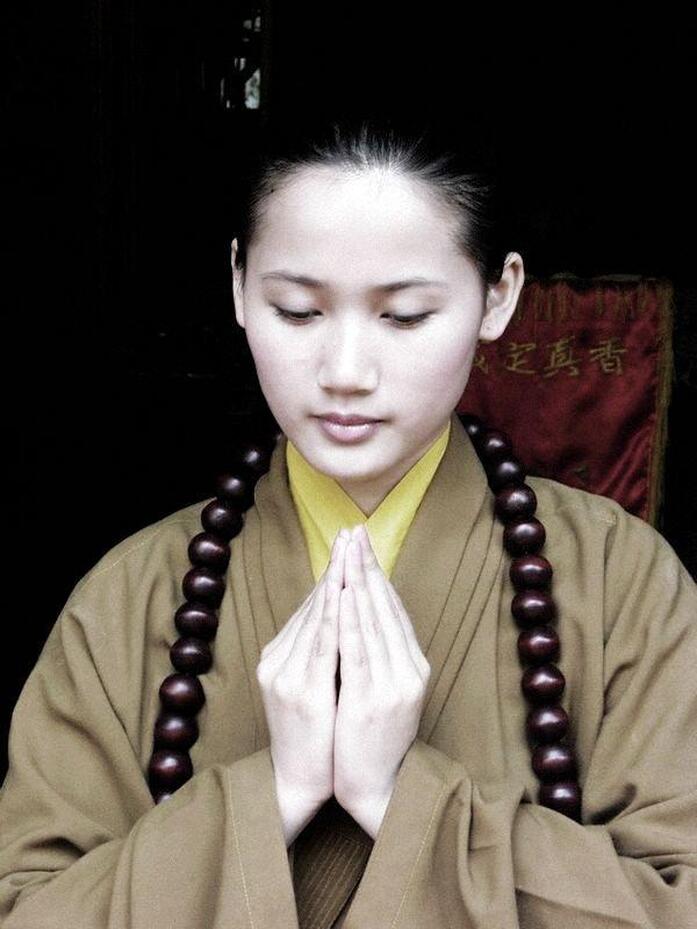
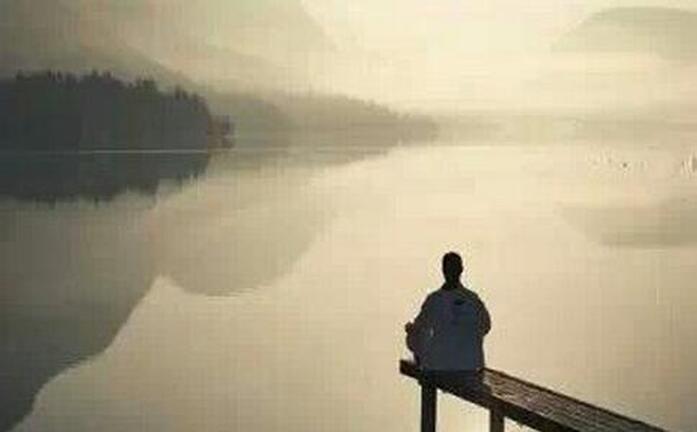

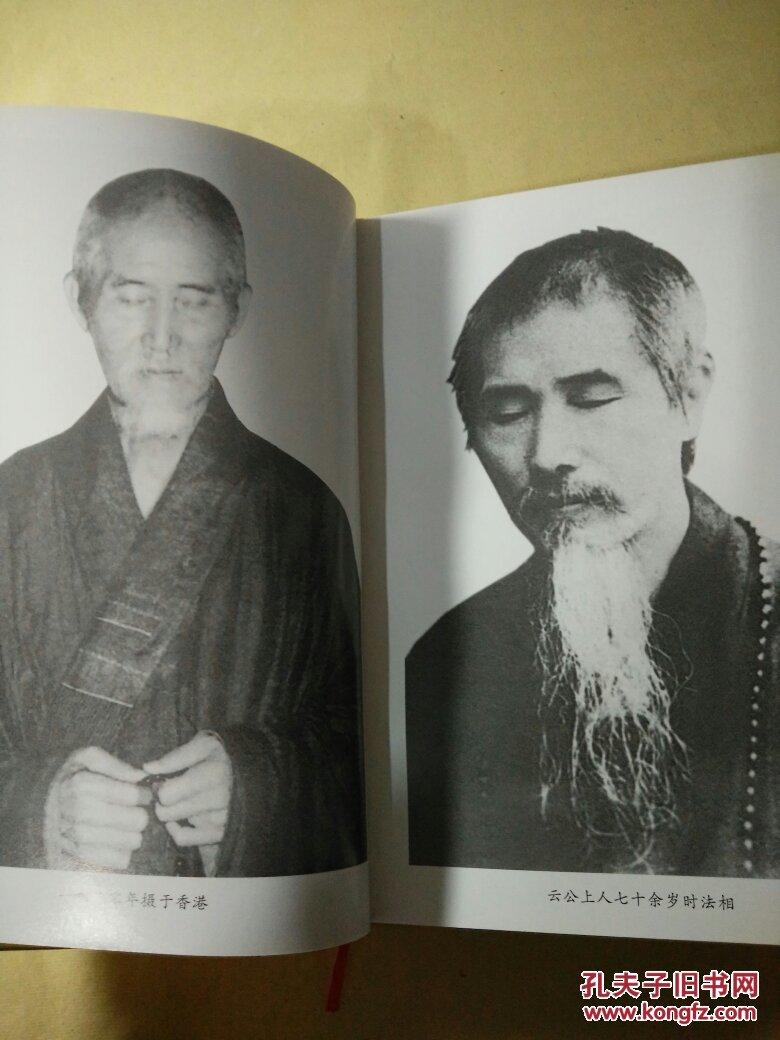
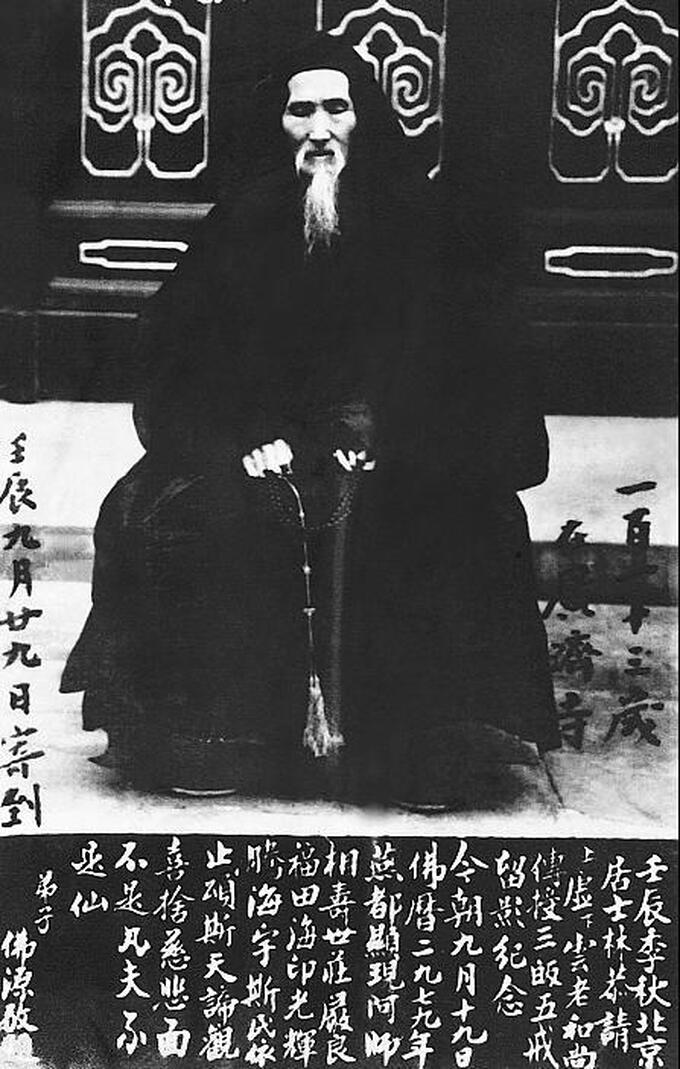
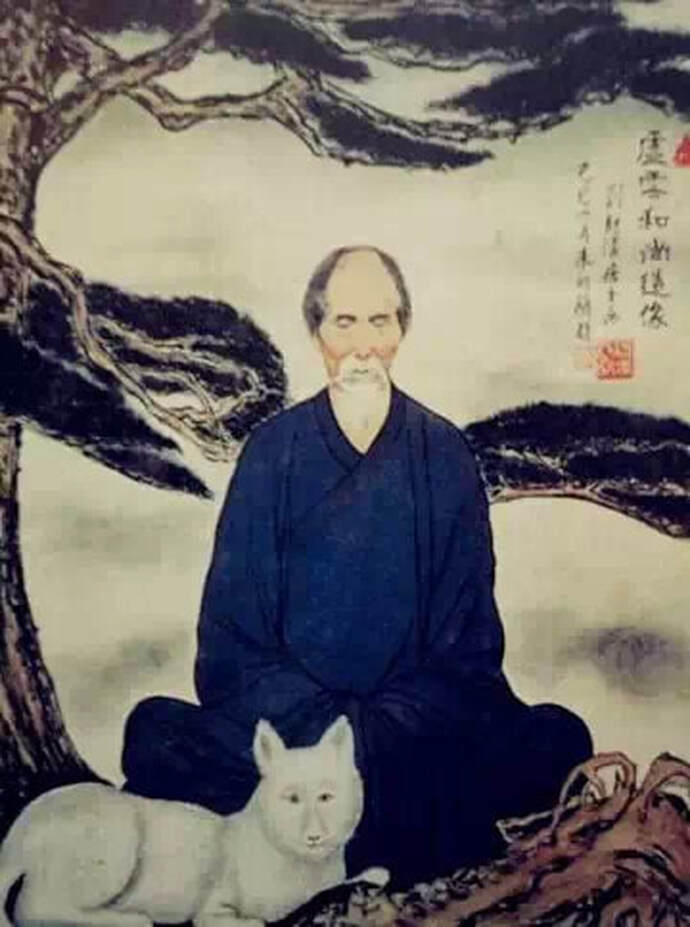

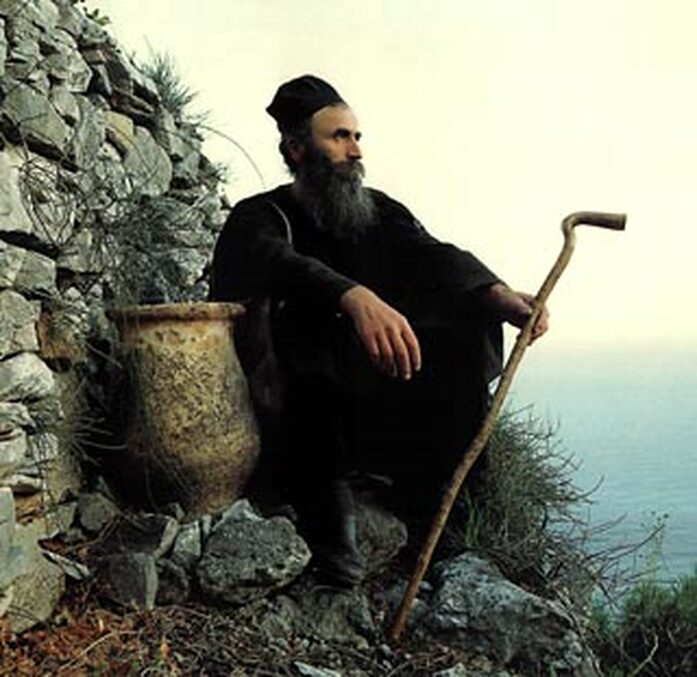

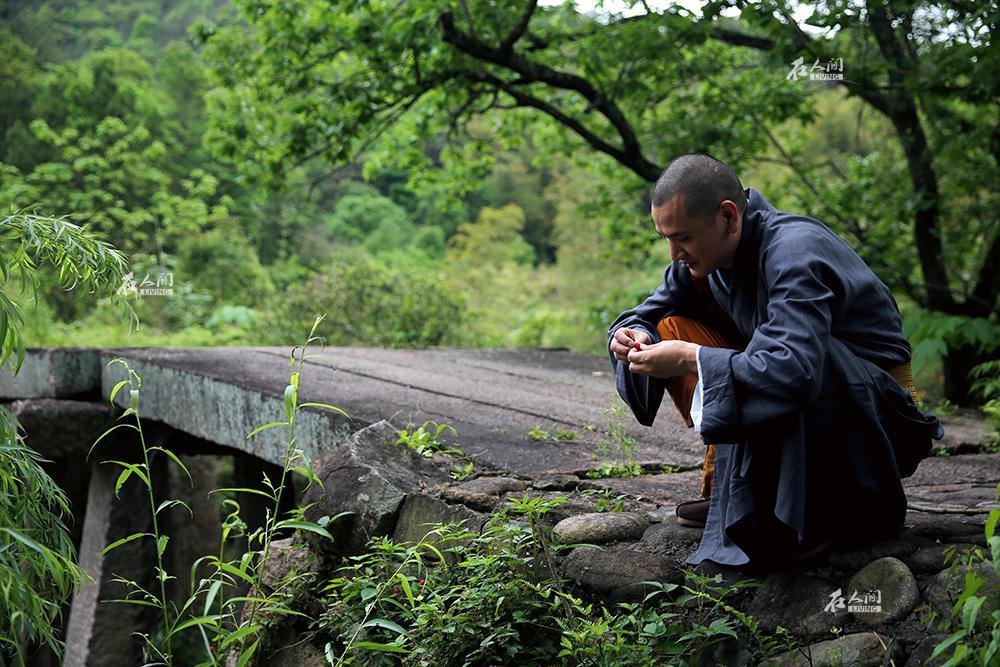
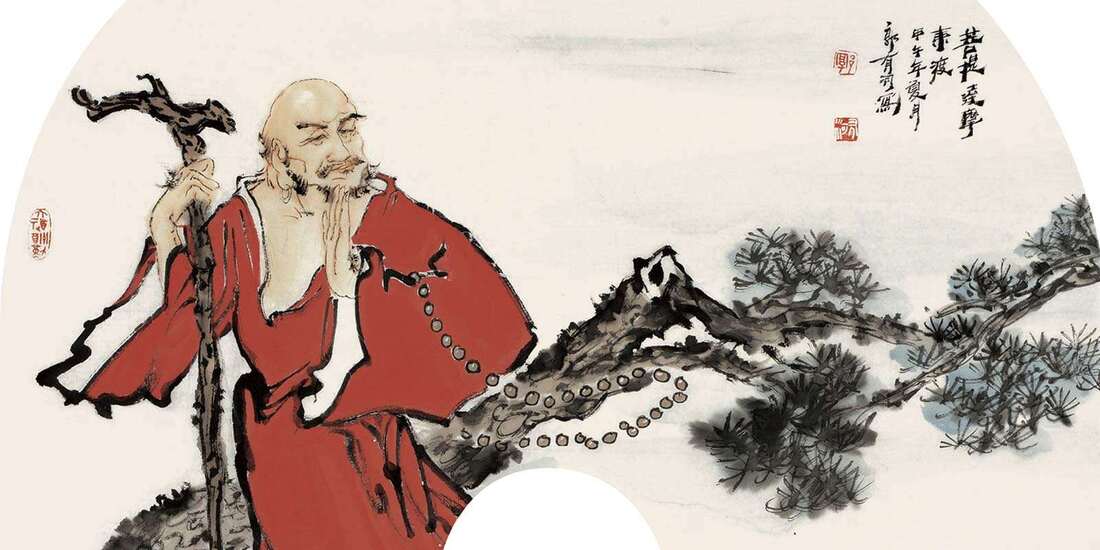
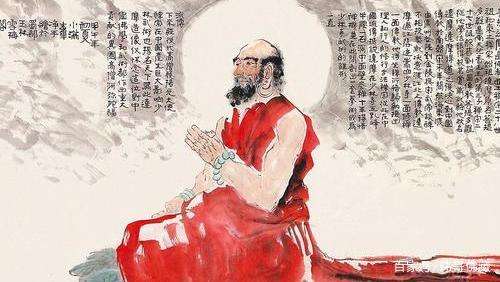
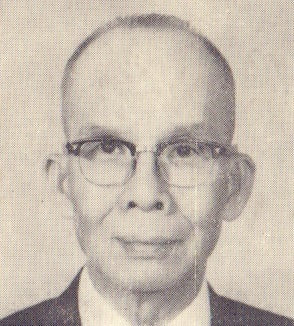
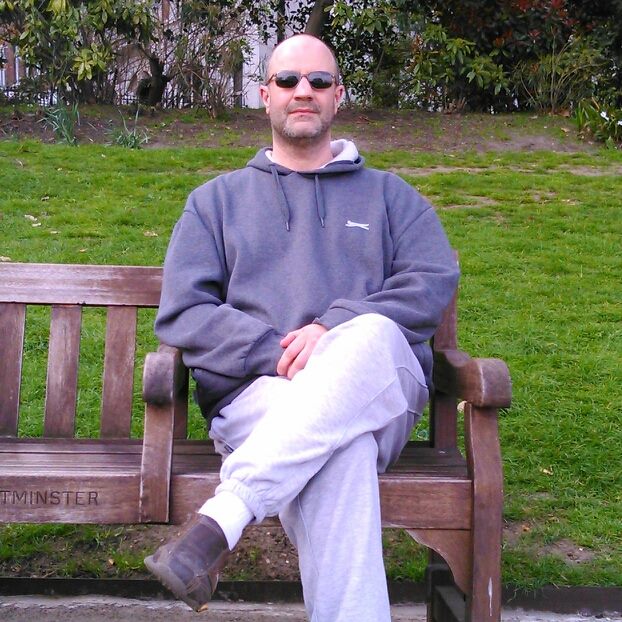
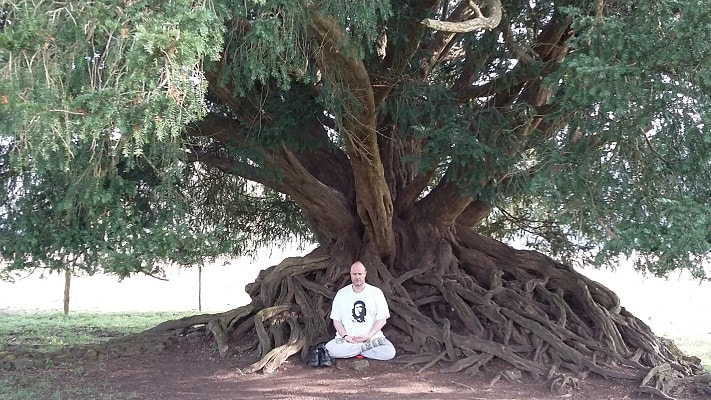
 RSS Feed
RSS Feed